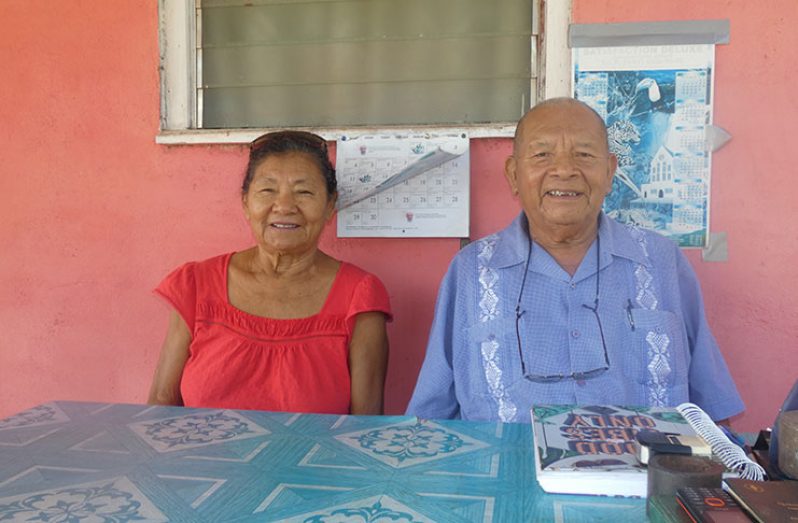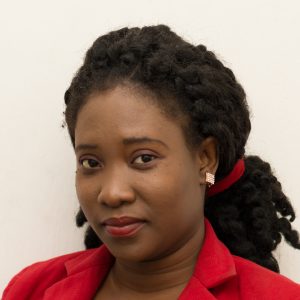–Looking back on a very rewarding political career with Phillip Duncan
IT WAS only on October 21, 2016 that Lethem became a town. To the newly-sworn-in Council, the residents and other officials, this was a prestigious achievement for Region Nine (Upper Takutu-Upper Essequibo). For Phillip Duncan, however, a man who can be considered a chief cornerstone in the Rupununi District, it was the realisation of a dream he had 55 years ago, and for him the joys of the declaration of township sank in a little deeper.
The 76-year-old community leader, who, through his many political titles, selfless service, spotless reputation and plain old love in his heart, is described as a political father of yesteryear and an earlier catalyst for change in the Region Nine district. It was at that very defining moment that Duncan did not regret being brave enough to respectfully decline the request of his service as a Member of Parliament by former President Linden Forbes Burnham in 1964. He was only 21 years old at the time.
In reminiscing on the start of a very fulfilling and satisfying political career, Duncan said that he had no idea what he was going to do, but just couldn’t say no. “I didn’t know what it was to be a Member of Parliament. They just said, ‘Phillip come; we want you to be Member of Parliament.’ I didn’t even know the date I was born at that time, because the Roman Catholics used to have a baptismal paper, but that was not sufficient to say well you were born on this date. But most of my struggle is that I didn’t know English well; it wasn’t my first language,” he reflected.
It was President Burnham who brought him to reality on how important his new appointment was. “He said to me, ‘Parliament is a High Court of Guyana; it makes laws and amends laws. You are a member of that Court.’ I didn’t know the importance, but I had to fall into the system,” Duncan related.
FIRST THINGS FIRST
Mr. Duncan was the only Indigenous MP at that time, and rather than focus on his limitations, he used his strengths to help his people.
His first goal was to perfect his English so that he can raise at the level of the National Assembly the issues and concerns of his fellow Wapishan Peoples, and by the same token translate for political figures what his people were saying during community meetings in Region Nine. Knowing that he was not in possession of a real birth certificate, Duncan pursued a verification process to ascertain his date of birth. He also began to do the same for his fellow Indigenous brothers and sisters who were in the same predicament as he.
Being a servant of his community brought him high praise and many rewards. And in 1966, he was appointed Parliamentary Secretary for Amerindian Affairs. Some seven years later, he was appointed Minister of State for Region Nine, and no sooner had he settled down at that job than he was made Minister of Amerindian Affairs. That was in 1977.
He feels the thing that helped him reach the pinnacle of his political career the most was his coming to realise that service to the people came first.
WITHOUT FEAR OR FAVOUR
His mission was to represent the residents of Region Nine, and he did so without fear or favour, even though he grew up at a time when tribal rivalry was encouraged. He pushed for the development of the Region at many forums, and says that he is finally seeing progress at the doorstep of his people, with the APNU-AFC Government.
“There is progress with APNU-AFC,” the veteran politician said. “We see roads building; health centres. The training of Amerindian personnel; the efforts being made to identify Amerindian Lands, and of cohesion, so that we can live as One Nation.”
And while there is so much more to be achieved where the issue of Amerindian land titling and other privileges that are democratically theirs are concerned, he is optimistic that they will be achieved once the current administration is at the helm of the government. “There are a lot of things to be straightened,” Mr. Duncan said, “but it cannot be straightened in one day or one year. It would take years.”
THE QUIET LIFE
Now that he is retired, Mr. Duncan says, he is beginning to enjoy the quiet life in Lethem with his wife of 53 years. He is also into spreading the Word of God, and serves as a Commissioner of Oaths and Affidavits.
A former member of the Rupununi Rehabilitation Committee and the Board of Directors of the Guyana School of Agriculture, Mr. Duncan is also a National Awardee, having been conferred the Golden Arrow of Achievement (A.A.).
Looking back on a life of service not only as a politician but as a son of the soil, he is urging other Amerindian youths to make themselves available for service. Though they may not have all the qualifications, he believes that it is the genuine desire to serve that matters. “I went without knowing what it meant to be a representative of the people, but I was able to represent, because I loved what I was doing,” he said.



.jpg)









